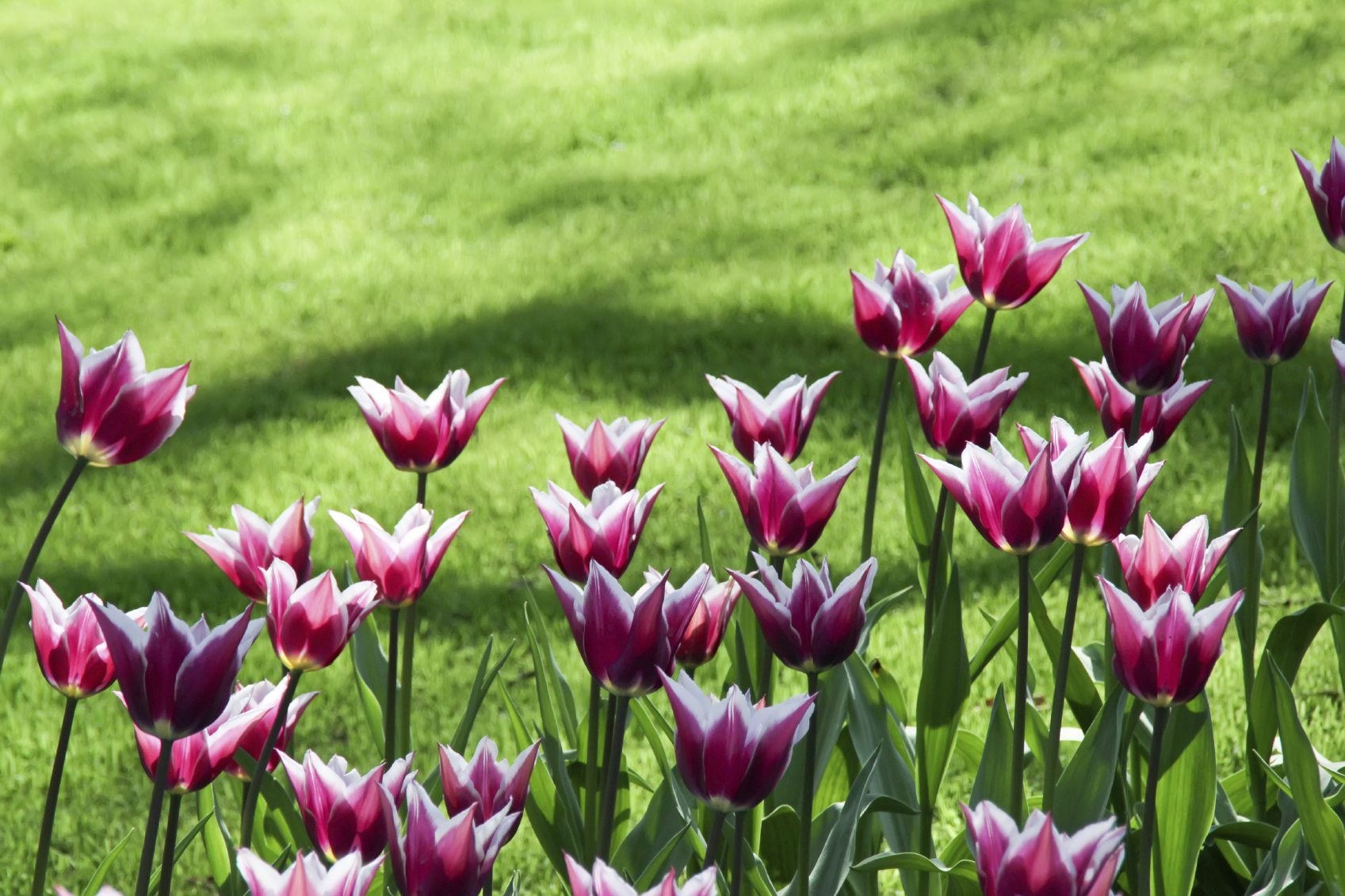Do Deer Eat Tulips: Tips On Protecting Tulips From Deer


Deer will eat almost any type of vegetation and while the animals are elegant and pretty to look at, this attribute is a negative for gardeners. One of the plants that deer seem to think is candy is the lovely spring tulip.
Protecting tulips from deer can be as hard as taking a two-year-old somewhere they don’t want to go. Let’s traverse some myths and facts together so I can learn how to keep deer from eating my tulips and you can benefit too.
Protecting Tulips from Deer
You carefully plant your tulip bulbs in the fall and then wait all winter for the first tender green tips to poke out. Brilliantly colored flowers are the next anticipation, and you eagerly check the bed daily for the first buds. Oh, what have we here? The delicate green leaves have been shorn off at nearly ground level. The likely culprits are deer.
Nursing has deprived them all winter and they are eating like lumberjacks trying to put the weight back on that they lost. Do deer eat tulips? Does Uncle Sam collect taxes? The question is almost too obvious to consider but it can be answered in the affirmative. There are very few plants deer won’t eat but they really favor the new green leaves of bulb plants. Usually, they don’t leave any green left to fuel the bulb and start the flower.
Preventing deer from eating tulips requires persistence and guile. Deer are clever at sidestepping our best deterrents, but there are a few items that have foolproof protection. Fences that are at least 8 feet (2 m.) tall might help but they are quite an investment.
Laying chicken wire over the area will get the leaves to a few inches (7.5 cm.) high but once they poke through the wire, the deer will have them. Plant choices, moving items, and deterrents can make Bambi feel less welcome with minimal investment.
How to Keep Deer from Eating My Tulips
- Planting strongly scented herbs, prickly plants, and even furry varieties of plants can repel deer.
- Deer are skittish of new things, so installing motion-detected lights, windmills, chimes, and other garden items that move or make noise should prove to be effective at keeping the herbivores away.
- Use a timer on sprinklers that go off at dusk and dawn, prime deer dining periods.
- Consider planting sacrificial plants that deer can snack on so they will leave your tulips alone.
- Preventing deer from eating tulips may be as simple as visiting the spice cupboard. Red pepper flakes, pungent spices, hot sauce, mothballs, garlic, onions, and other intensely flavored or scented items can confuse and hold off the grazing animals.
- Human hair and hand soap hung in pantyhose may help too.
Chemicals are the last thing you want to resort to in the landscape, especially if you have children and pets. There are many organic deer repellents from which to choose that are combinations of capsaicin and other natural items such as ammonium salts.
Sign up for the Gardening Know How newsletter today and receive a free copy of our e-book "How to Grow Delicious Tomatoes".
Deer will gradually get used to any formula or hunger may simply drive them to ignore their fear. The best method of repelling deer is to switch up your deterrents. Use combinations of motion, scent, taste, and barrier repellents and change them on a rotational basis so deer don’t become complacent.
Fending off the gustatory onslaught of deer can be a full-time job. Just remember, you’re in good company, as your neighbors are also rising to the challenge. Consider it a bonding experience and discuss what works and what doesn’t with your local gardeners.
Who knows, some bit of folksy wisdom may come out that turns out to be the key to keeping deer at bay.

Bonnie Grant is a professional landscaper with a Certification in Urban Gardening. She has been gardening and writing for 15 years. A former professional chef, she has a passion for edible landscaping.